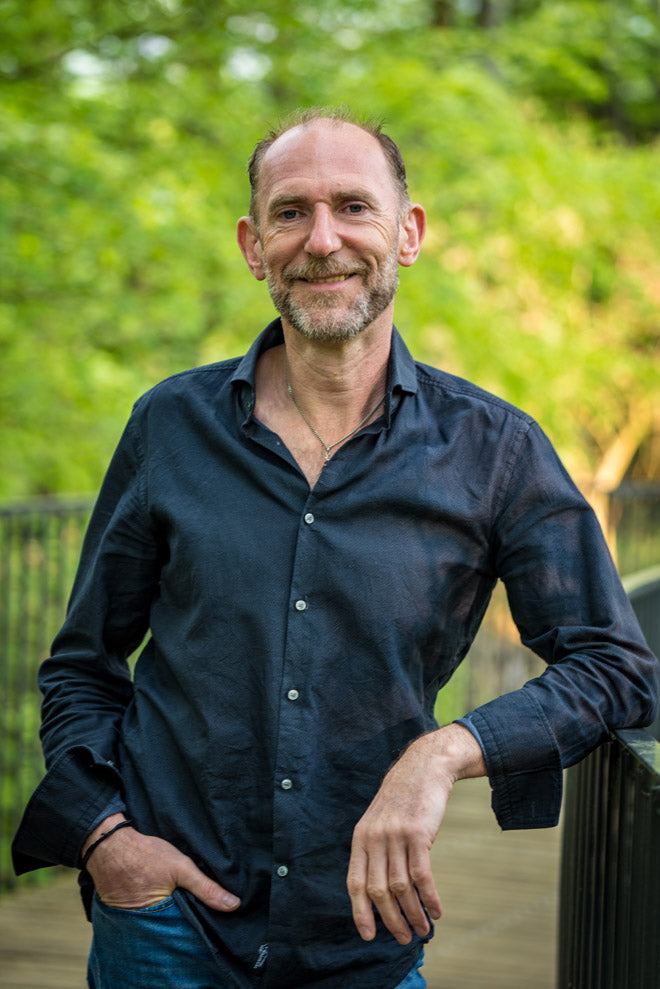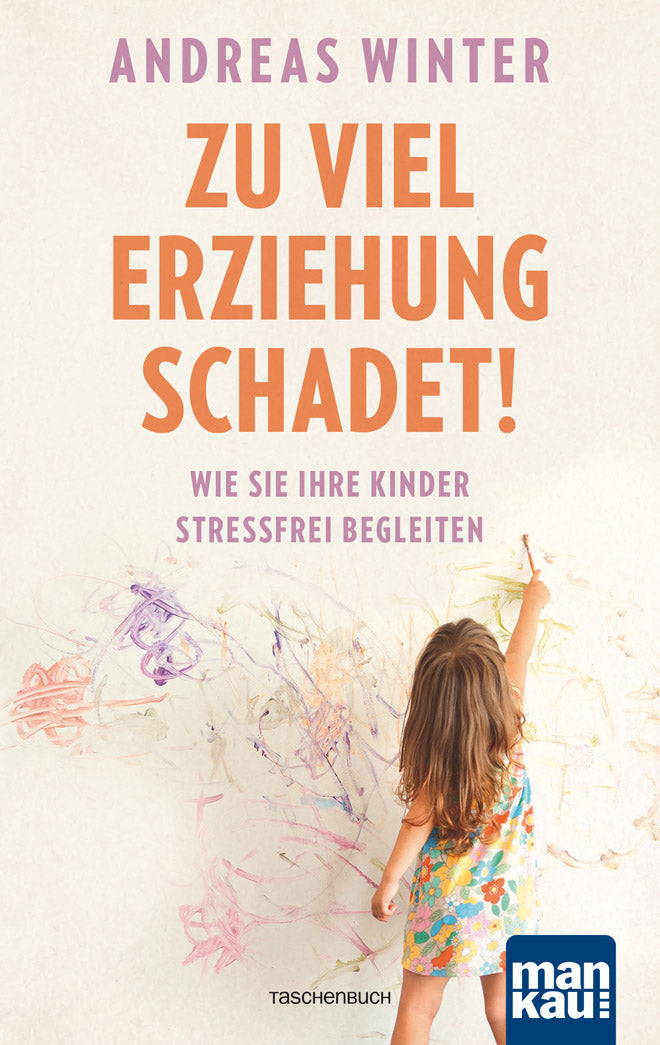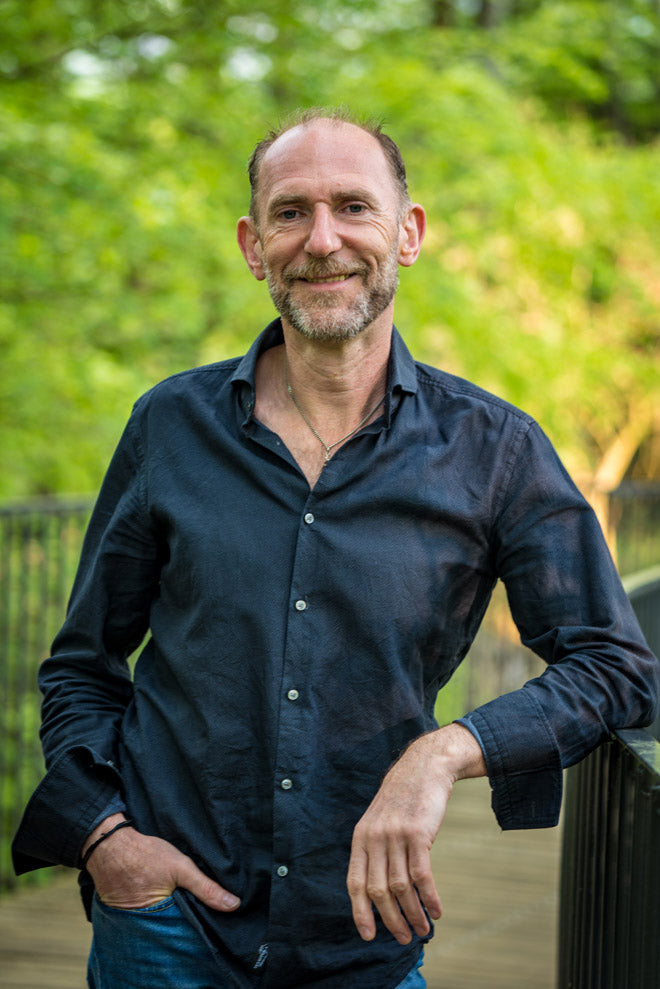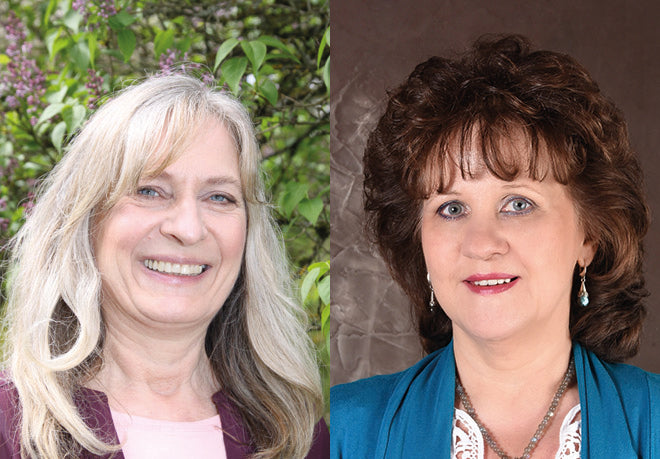
Interview with qualified teacher Andreas Winter: “Too much education is harmful!”
Interview with qualified teacher Andreas Winter: “Too much education is harmful!”
"If parents themselves are not good role models to be emulated, we should not be surprised if children remain disorientated. Parents are watched at every step by their children, who copy their behavior until they reach primary school age. If parents want their children to be self-confident, self-assured and able to deal with conflict, they should set an example for them - and not just demand it!" In an interview, the renowned qualified teacher Andreas Winter , author of the paperback "Too much education is harmful!" , talks about early childhood experiences and their influence on later quality of life and explains how we can develop a more human, natural and relaxed parent-child relationship.
Your tried and tested guide, which is now available for the first time as a paperback, is expressly not intended to be a parenting guide or pedagogical manual. What is the aim of the book and who is it aimed at?
Winter: This book is aimed at parents and people who want to become parents. I also address the former child in all of us who once enjoyed parental upbringing or perhaps suffered as a result. The aim of my book is not to tell parents what they should or should not do with their children - I don't think such advice concepts are very promising. "Too much upbringing is harmful!", on the other hand, wants to show what influence subconscious parental behavior has on the behavior and development of their children. The more aware we are of the influence our parents had on us and that we have on our children, the greater the chance of avoiding upbringing-related behavior from which we all suffer.
In view of rising youth crime, falling educational levels and a frequently claimed decline in values, the title and thesis of the book sound paradoxical, and for some even dangerous. How do you respond to parents or teachers who are provoked by your unusual message?
Winter: Well, I do say: "Too much parenting is harmful!", but I justify that by saying that there are hardly any parents who really know how to raise their children properly, let alone how to implement it. I show that the problems of society - such as crime, chronic illnesses, unemployment, drug abuse and relationship problems - are caused by parents having too much influence. If parents themselves are not good role models to be emulated, we should not be surprised if children remain disorientated. In many societies, parenting is equated with the transmission of norms and values that are practically forced on children with high expectations. However, many of these values are no longer compatible with today's generations in this world. "Don't attract attention" or "use your elbows", for example, are extreme behaviors that no one today can achieve or remain successful and satisfied with in the long term.
One goal of your approach is to reverse the fatal “long-term effects” of one’s own upbringing so that mothers and fathers can be real role models. How can this be achieved?
Winter: I have to go into a bit of detail here: I assume that a person is born with a healthy self-esteem. A child develops itself and its abilities without bad intentions, malice or malice. It is only through restrictions, such as misunderstandings, patronizing, pressure to meet expectations and disappointments, that it begins to develop its behavior reactively. The result is defiance, intimidation, a propensity for violence, psychosomatic symptoms, clumsiness and other attempts to prevent inhibiting influences. If the cause of the behavioral and emotional disorder is uncovered and emotionally processed, the feeling in similar later situations also changes. This brings the affected "over-educated" person back to his original course. In this way, I use depth psychological methods to "undo" what the parents inadvertently did to their now adult offspring; "Reframing" - derived from the English word "frame" - is the name given to this technique, which can be used to render ancient emotional memories harmless and provide them with a "new frame" through a different perspective. When these consequences of upbringing are resolved, people are freed from their subconscious behavioral patterns and their self-confidence is repaired, their entire life changes for the better in a matter of weeks. The audio coaching on "Too much upbringing is harmful!", which is available as an mp3 download, is also a great help here.
You differentiate between a freely variable character and a basic personality that cannot be changed but can only be developed. What consequences does this have for education?
Winter: The biggest you can imagine! That's why I'm risking my scientific reputation and entering an area that has been so heavily denied and frowned upon that it's downright sacrilege for a scientist to deal with it: The basic personality does seem to be determined at conception - completely independently of the parents' personality traits - and determines the basic tendency with which we try to develop or react to limits to development. This tendency apparently exists, beyond the influence of upbringing, already in the womb and remains unchanged throughout life. This can be observed very clearly in social conflicts: there are people who retreat into their world of thoughts to restore harmony, others seek immediate confrontation or work harder physically and react. Still others change their point of view and thereby defuse the conflict. Some try to end the conflict by passing judgment, still others threaten, ignore the conflict or invent a new solution. A child who wants to resolve conflicts by escaping the world will withdraw even further through a clarifying conversation, whereas a child who wants to confront them needs this conversation as a comparison of strengths and not a "silent wait-out" of the situation. These tendencies have long been known and are no secret to anyone; they can be found, for example, in the well-known "zodiac signs" of Western thought. The problem is that this system of basic personalities has so far been seen as a "restriction of people's freedom of choice" and has therefore been rejected as "unscientific". In my opinion, human character, on the other hand, is changeable. Here we find all the characteristics and behaviors that can be learned or instilled, and this is also the area that my book is about: what comes can also go again. Undesirable social behavior, illness or depression can be changed.
In your books you argue that the influence of upbringing begins in the womb - for example, prenatal interventions could be responsible for attention deficit hyperactivity disorder (ADHD). How should we imagine this, and what kind of therapy is possible here?
Winter: In my opinion, attention deficit hyperactivity disorder (ADHD) is not actually a disease that can be treated with medication, but rather a logical attempt to maintain the level of endorphins (“happiness hormones”) in the blood by increasing the willingness to perform. This means that there is even a similarity to heroin addiction – with the difference that the affected person cannot simply administer the appropriate dose of the substance, but must ensure through their behavior that the body produces the drug. There are a number of neurobiological and psychological conditions behind this: We know that intelligence develops in the womb. The more interesting and stimulating influences the embryo experiences, the higher the number of its neuronal connections. This includes, in particular, positive feelings, i.e. the effect of endorphins, the so-called “happiness hormones”. These hormones are essential to life, but can be fatal if overdosed because they paralyze breathing; the body regulates its own production when there is a significant excess of external supply, as happens through the umbilical cord in a particularly euphoric or expectant mother. The child therefore becomes dependent on morphine precursors even before it is born! ADHD is therefore an absolutely logical and understandable reaction to the sudden decline in early childhood intelligence development. Anyone who tries to encourage their children through excessive prenatal interaction, such as constant music or extreme gymnastics, should not be surprised if they continue to demand the same level of attention and recognition. The drug Ritalin, administered all too carelessly, may alleviate the symptoms, but it also increases the willingness to use drugs later on. A support program that responds to the child's increased needs is more sensible here. If the child feels more respected, taken more seriously and treated as an equal, it does not need to fight for its position as an intelligent and sensible person. I believe that massive successes prevent ADHD. This does not require therapy, just parental maturity.
What do you actually understand by “education” and what prerequisites must an “educator” – parents, teachers, carers, etc. – have in order to be successful?
Winter: I understand education as the conscious and unconscious influence on the behavior and character of a child. Strictly speaking, a child decides for itself how it will be educated by you. It is guided by your ability to act, i.e. only by whether or not your behavior is suitable for implementing your intention. For example, a parent's depressive behavior can certainly invite a child to imitate it if the depression is used to blackmail consideration and cooperation. A child also only accepts educational intentions if they feel that they are conducive to their realization. Pedagogues call this education through insight. In other words, everything that a child believes will enable them to assert themselves in life is also accepted.
What was considered good and right for one generation may no longer be relevant for their children or may even be the opposite. Are there such things as "lasting values" that are worth passing on?
Winter: Certainly! We find some of them in the holy scriptures of the world's religions alone. Loving yourself, helping and respecting each other, but also treating the planet responsibly - these principles are all well known and will always be valid. But to be honest: has it ever really been possible to consistently convey these values and educational goals? I'm not throwing everything out the window with my demands, I'm just saying: "Stop raising your children with the 'legacy' that didn't work for you in order to live a happy and fulfilled life. Don't pass on what you yourself suffered from!"
The new type of education presented in your book is understood as “stress-free support and encouragement”. What are the goals of this and how is it different from previous models of education?
Winter: Since children learn from their parents everything they think is helpful in asserting themselves or avoiding restrictions, it is important to model for children as authentic an image of a happy adult as possible. The child observes closely how parents deal with stress and conflict and learns from this - quite subconsciously. On the one hand, parents should not see themselves as being so important for the basic elements of living together - the oft-heard phrase "You don't do that!" can safely be removed from the repertoire, because children find out for themselves over time what is socially acceptable and what is not. On the other hand, parents should know that their children are watching them at every step and that their children copy their behavior until they reach primary school age. If parents want their children to become self-confident, confident and able to deal with conflict, they should model exactly that for them - and not just demand it! I am saying clearly that you should really consider whether you are even prepared to take on the incredible responsibility that being a parent entails: every jet pilot takes less risk and is better prepared for his task than parents are with children. Previous parenting models were primarily characterized by consciously influencing children - unfortunately, this only works if you never let up on your own behavior. It is precisely the parents' uncontrolled behavior that is constantly repeated and is therefore perceived by children as much more authentic and therefore more worth imitating.
Book tip:
Andreas Winter: Too much parenting is harmful! How to accompany your children without stress. Mankau Verlag 2018, paperback, 12 x 19 cm, 206 pages, ISBN 978-3-86374-489-2, 9.95 euros (D) / 10.30 euros (A).
Link recommendations:
More information about the guide "Too much education is harmful!"
To the reading sample in PDF format
More about the author Andreas Winter
To the Internet forum with Andreas Winter










